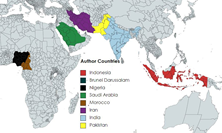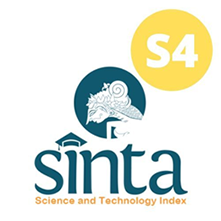Literature Review: Management of Depression with Physical Exercise on Changes in Blood Sugar Levels in the Family of Diabetes Mellitus
Abstract
The increase in blood sugar in type 2 diabetes mellitus is a big problem because it can have physical and psychological impacts. Type 2 diabetes mellitus can cause lifestyle changes, physical weakness, vision problems, and potentially death. All the physical issues that arise indeed have the opportunity to cause emotional problems and depression in people with diabetes mellitus. This review aims to identify research articles on managing depression with physical exercise on changes in blood sugar levels in families with diabetes mellitus. The methods used in compiling this literature review are (1) identifying variables in the literature, (2) identifying relevant literature based on topics and titles, (3) obtaining literature in complete reading form, and (4) analyzing the results of various variables in the literature. A literature search was attempted on several databases, such as US Proquest, ScienceDirect, Pubmed, and Google Scholar. The results of this review were obtained from a total of 10 evidence bases, found one qualitative study, two quasi-experiments, four cross-sectionals, 2 Systematic Literature Reviews (SLRs) and meta-analyses, and one randomized controlled trial (RCTs). The conclusions based on this review explain that research on the application of physics exercise for families with diabetes mellitus who are depressed with blood sugar levels above normal has decreased, which means it has a significant effect.

This work is licensed under a Creative Commons Attribution-ShareAlike 4.0 International License.
Authors who publish with this journal agree to the following terms:
- Authors retain copyright and grant the journal right of first publication with the work simultaneously licensed under a Creative Commons Attribution License that allows others to share the work with an acknowledgement of the work's authorship and initial publication in this journal.
- Authors are able to enter into separate, additional contractual arrangements for the non-exclusive distribution of the journal's published version of the work (e.g., post it to an institutional repository or publish it in a book), with an acknowledgement of its initial publication in this journal.
- Authors are permitted and encouraged to post their work online (e.g., in institutional repositories or on their website) prior to and during the submission process, as it can lead to productive exchanges, as well as earlier and greater citation of published work (See The Effect of Open Access).











